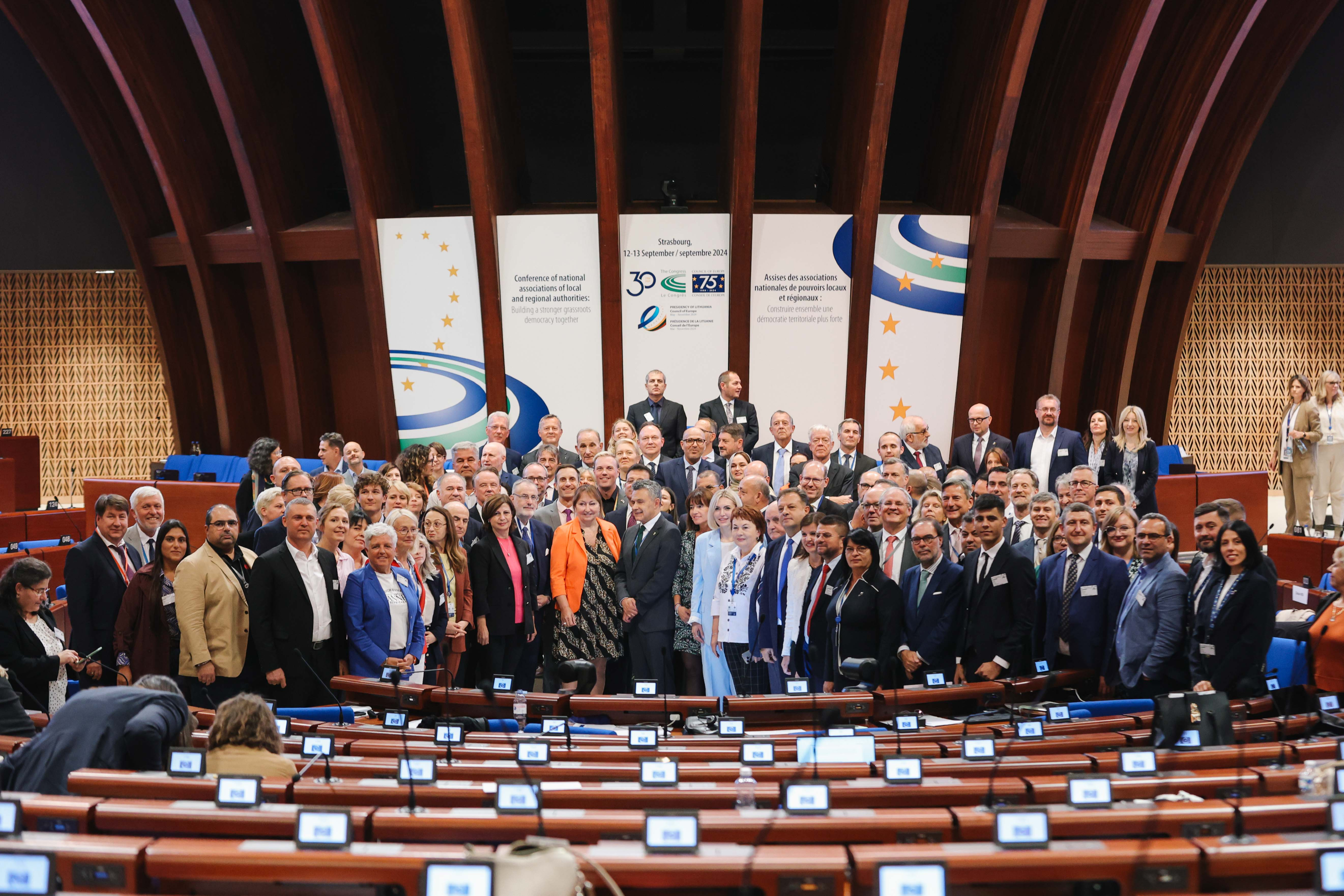The 4th Conference of National Associations of Local and Regional Authorities held in Strasbourg on 12 and 13 September gave the associations an opportunity to set out what they expect from Congress members while also taking stock of implementation on the ground on a daily basis of the various texts and recommendations drawn up by the Congress.
In his opening address, Congress President Marc Cools began by stressing the vital role played by the around 60 associations attending the Conference, primarily in supporting and advancing the cause of local and regional democracy, before adding that their task was all the more crucial since “Europe’s stability also depends on the local level.”
Speaking on behalf of the Lithuanian Presidency of the Committee of Ministers, Lithuanian Vice-Minister of the Interior Arnoldas Abramavicius praised the commitment of the associations and the role of networks of associations, in particular in south-eastern Europe, in better co-ordinating local and regional policies.
Council of Europe Deputy Secretary General Bjørn Berge said that he was counting on local and regional authorities to reverse the trend towards democratic backsliding and stressed the great cost of moving away from democracy, starting with repression at home followed by aggression against neighbouring countries, as tragically demonstrated by the Russian example. In addition to its commitment and its projects, he stressed the key part played by the Congress in publicising and operating at local level the register that would provide compensation to Ukraine once the war was over.
Lastly, the opening ceremony was also addressed by Andorran youth delegate Lisa Cruz Lackner, who called for young people to be more closely involved in policies and decisions that affected them most, for instance as regards the climate or digital technology. She said that would bring them closer to local and regional politics, pointing out that “young people are not just tomorrow’s leaders but also partners today.”
Charter of Local Self-Government working for Europe’s towns, cities and regions
Ekrem Imamoglu, Mayor of Istanbul, described how his city had evolved and transformed itself on the basis of the European Charter of Local Self-Government. In his view, the Charter had strengthened local democracy in general throughout Türkiye, while also bringing about reform of local authority funding, more transparent decision-making and improved management of local budgets. To enable citizens to take part in the management of public funds, Istanbul had launched an initiative called “Your budget” in 2019, with competitions and referendums aimed at modernising it. The city also wanted to involve young people more closely in politics, in particular through its digital tools and websites, with their 28 million followers and users. Lastly, he paid tribute to the mutual support between local authorities which had been forthcoming immediately after the earthquake in 2023, enabling prompt and effective co-ordinated action to be taken.
Gunn Marit Helgesen, who heads the Norwegian Association of Local and Regional Authorities and is a member of Telemark County Council, also described the benefits which the Charter had brought her country. She referred to the effectiveness of the multilevel interregional co-operation, punctuated by regular consultations between regions and central government. Local self-government was also included in the Norwegian Constitution, which showed how important it was in the country.
Rebalancing relations with governments
Moderated by Hungarian youth delegate Zsuzsa Vido, the debate first looked at steps taken by the associations to involve young people from isolated and rural areas in local and regional action programmes. In reply to questions about how the associations operated in the Netherlands, former Congress President Leen Verbeek called for improved relations between associations and governments, stating that it was time to move from verticality to real horizontality so as to achieve better balance. Lastly, Skopje Mayor Danela Arsovska, who is also head of the North Macedonian delegation to the Congress, condemned the underrepresentation of women among mayors – there were only two in her country, including herself – and also in national associations. Several other representatives agreed that this was an “unacceptable” situation and called for genuine parity in local authorities and within their associations.




